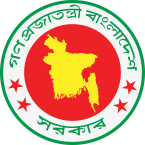Islamic Radicalism Looms over December Election in Bangladesh

The South Asian country of Bangladesh, which sits to the east of India and the west of Myanmar, is one on the most densely populated countries in the world. Islamic extremism has been rising in the traditionally tolerant society, exploiting communities plagued by poverty. As a Muslim-majority country with a tumultuous political history, Bangladesh now has its own domestic militant groups beyond transnational jihadi groups like the Islamic State and Al-Qaeda.
With a general election on the horizon in December of this year, political rivalry is rampant. Bangladesh National Party leaders say they will not participate in an election with rival political party the Awami League, citing “concerns about manipulation and vote rigging.” The current moderate government is at risk of losing to Islamic fundamentalists.
In the period of 2014 to 2017, Bangladesh faced a campaign of high-profile violence by Islamists against suspected secular and atheist bloggers and foreigners. In July 2016, ISIS terrorists attacked a Gulshan bakery in Dhaka, the capital city, leaving twenty-nine people dead. ISIS, which has been facing setbacks in Syria and Iraq, has penetrated South Asia and is actively targeting opportunities in Pakistan, India, and Bangladesh.
In the absence of a tolerant political culture, religious extremists have asserted their cries for an Islamic-fundamentalist state. The ruling Awami League party responded to global criticism by launching a security crackdown in which some fifty militants were killed, including top leaders, and dozens were arrested. Alarmingly, these extremist groups have international financial backing, especially from Saudi Arabia where Wahhabi, the ultraconservative version of Islam, is practiced. The Saudis have sent billions of dollars to Bangladesh since the 1970s, funding thousands of radical mosques and madrasas, the primary breeding grounds for radicalized violence. Bangladesh, of course, is eager to encourage Saudi investment in the country despite the danger of funding extremist groups.
No elected party in Bangladesh has confronted Saudi Arabia or resisted its questionable funding and breeding of terrorism for fear of the Saudi government’s expulsion of Bangladeshi migrant workers. Bangladesh has millions of migrant workers in Saudi Arabia, who play a vital role in that country’s economy with billions of dollars returning to Bangladesh.
“To be sure, Saudi Arabia cannot be held directly liable for much of the expression of supremacism, intolerance, and anti-pluralism in the Muslim world,” Asia commentator Dr. James M. Dorsey said in a recent piece at Modern Diplomacy. “Yet, by the same token there is little doubt that Saudi propagation of ultra-conservatism frequently contributed to an enabling environment.”
Bangladesh has reportedly launched a billion-dollar project to fund the construction of mosques to combat radical Islamic indoctrination from taking hold. The funding is provided at least in part from the Saudi government in an undisclosed amount. Minority groups in Bangladesh have raised concerns over the project of Saudi-backed mosques, anticipating that these could spread the ultra-conservative Sunni doctrine of Wahhabism practiced in the Gulf kingdom.
An expert said the real aim of the billion-dollar mosque project by Prime Minister Sheikh Hasina could be political. She may be trying to win the good graces of Muslims across the spectrum of ideology in the country and get ahead of opposition by fundamental parties.
The results of this year’s general election will have huge implications for an already historically fragile country where national politics have enabled the jihadist resurgence.
